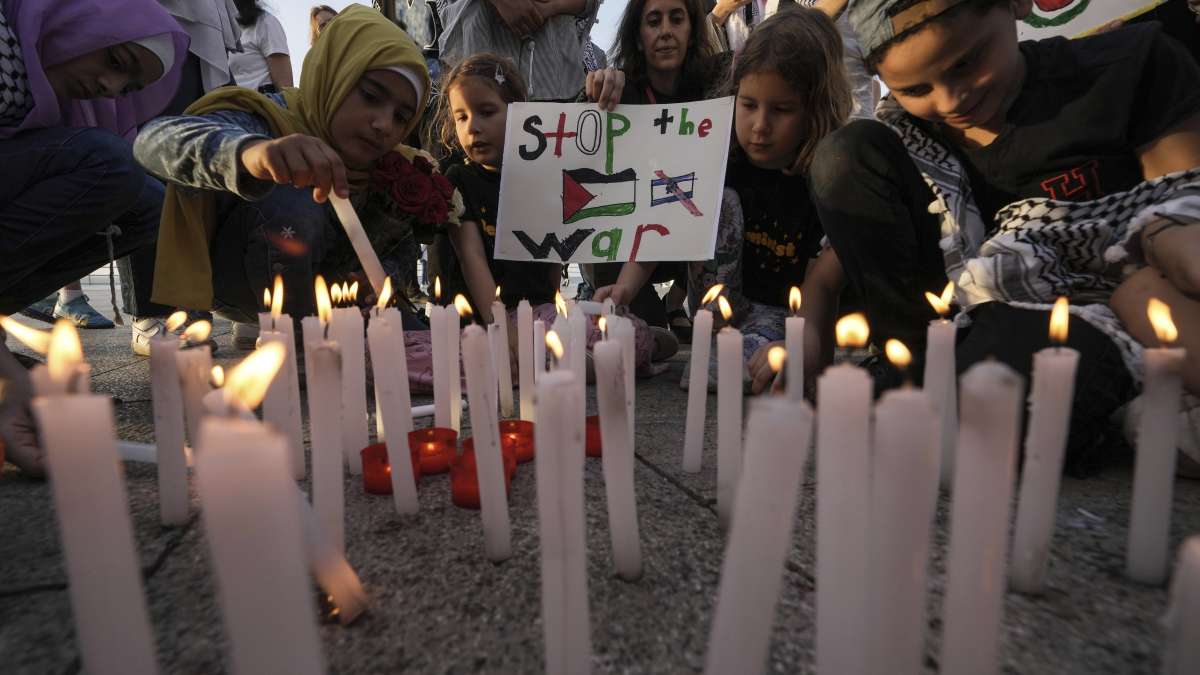
Hamas stated they knowledgeable ceasefire talks mediators that they’re prepared to succeed in a “complete agreement” together with a complete hostages/prisoners change deal if Israel “stops its war and aggression against people in Gaza,” a press release from the group stated on Thursday.
The main assertion from the militant group got here because the Israeli army has lifted a ban on the sale of meals to Gaza from Israel and the occupied West Bank as its battlefield offensive chokes worldwide help, in line with Palestinian officers, businessmen and worldwide help staff. Army authorities gave Gazan merchants the inexperienced gentle to renew their purchases from Israeli and Palestinian suppliers of meals akin to contemporary fruit, greens and dairy items this month, days after Israeli forces launched an assault on the enclave’s southernmost metropolis of Rafah, the individuals stated.
Israel reopens Gaza meals gross sales
The offensive in opposition to Rafah, a key gateway into Gaza from Egypt, has successfully halted the stream of UN help to the devastated Palestinian territory. Israel is coming underneath mounting international stress to ease the disaster as humanitarian businesses warn of looming famine.
“Israel phoned Gazan distributors who had been purchasing goods from the West Bank and Israel before the war,” stated Ayed Abu Ramadan, chair of the Gaza Chamber of Commerce. “It told them it was ready to coordinate the pick-up of goods.”
Reuters, which interviewed greater than a dozen individuals accustomed to the event, is the primary news outlet to report on the small print and impression of this resumption of economic meals deliveries certain on the market in Gazan markets and shops. The shift marks the primary time any items produced inside Israel or the West Bank, an Israeli-occupied Palestinian territory, have been allowed into Gaza since struggle erupted in October final yr, in line with the Palestinian officers, merchants and residents.
Asked by Reuters in regards to the resumption of deliveries, COGAT, the department of the Israeli army chargeable for help transfers, stated it was taking a look at methods to spice up humanitarian help and improve the quantity of meals on the market in Gaza. “Allowing for the private sector to bring some food into the Gaza Strip is part of those efforts to increase the amount of food that’s coming in,” spokesperson Shimon Freedman added.
Aid staff have urged Israel for months to permit extra business deliveries to enter Gaza so contemporary meals can complement worldwide help, which largely comprises non-perishables like flour and tinned meals. The reopening isn’t any panacea, although. The stream of deliveries, carried out by way of the Kerem Shalom border crossing between southern Gaza and Israel, has been erratic, in line with Palestinian officers who stated anyplace between 20 and 150 vehicles – every carrying as much as 20 tonnes of meals – have entered per day relying on what number of Israel permits in.
That is nicely in need of the 600 vehicles a day that the US Agency for International Development says is required to handle the specter of famine, even when including the roughly 4,200 vehicles of meals help – about 190 a day – that Israeli officers say have entered Gaza because the starting of the Rafah assault on May 7.
October 7
Before the struggle started on Oct. 7, when Palestinian group Hamas attacked southern Israel, a median of 500 help and business vehicles entered Gaza every day carrying all the products wanted within the enclave from meals and medical provides to farming gear, in line with UN figures. The common quantity since then is under 140 vehicles a day, in line with a Reuters tally of Israeli army statistics, at the same time as Israel has laid waste to the enclave in it mission to eradicate Hamas, sending help wants via the roof.
The meals coming in can be costly, and scant substitute for worldwide help that has already been paid for by donor international locations and organizations stated 4 help staff concerned in coordinating deliveries to Gaza. They requested anonymity to talk freely about delicate issues. Three Gazan residents interviewed stated that they had seen Hebrew-labelled produce in markets, together with watermelons from an Israeli settlement, however that it was typically being bought at costs too excessive for cash-strapped and displaced households.
“I bought two eggs for 16 shekels ($5), just because my kid, three years old, cried for eggs,” stated Abed Abu Mustafa, a father-of-five in Gaza City. “Normally I could have bought 30 eggs for less.”
Also Read: ‘Where have been your eyes on Oct 7’: Israel’s stern reply to 45 million crossed ‘All Eyes On Rafah’ viral development
Source: www.indiatvnews.com




